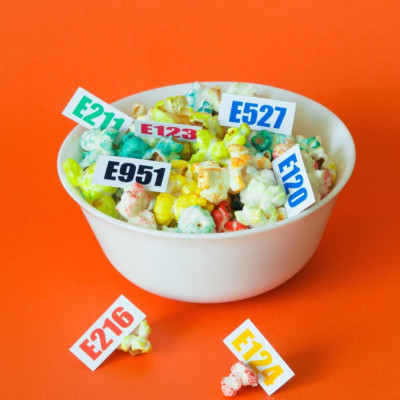
2021-10-15
Visited : 2134
Following recent recommendations by an expert panel, the Member States of the European Union have formally banned food coloring E171 from all foods, beginning in 2022. Also known as titanium dioxide, the chemical is commonly used as a white colorant in processed foods.
In May the European Food Safety Authority (EFSA) declared that concerns over the genotoxicity of titanium dioxide particles meant the food additive can no longer be considered safe. Now, after a proposal to officially ban the food additive was voted on by Member States, a six-month phasing out period will begin at the start of 2022 allowing companies time to remove titanium dioxide from all food products.
Over the last few years new research into the potential health effects of nanoparticles led many scientists to re-evaluate the safety of many previously accepted food additives. The possible health dangers of titanium dioxide in particular were suspected to arise when it enters a human body in the form of nanoparticles (particles less than 100 nm in diameter).
A 2016 ESFA review on titanium dioxide controversially declared there to be a lack of clear evidence on the additive’s carcinogenic or genotoxic effects. But a more recent ESFA review included new research on nanoparticles and concluded it to be an unsafe food additive because there was insufficient evidence establishing a safe maximum daily intake.
“Genotoxicity is the ability for a substance or any other toxic agent to damage DNA, the genetic material of cells, which may in turn, as a possible consequence, lead to cancer,” a European Commission Food Safety statement notes. “This [new ESFA] assessment took into account new data that were not available when EFSA re-evaluated E 171 in 2016, and made use, for the first time, of the 2018 EFSA Guidance on nanotechnology.”
Titanium Dioxide was first mass produced over a century ago as a white pigment commonly used in paints. It is a cheap and effective white coloring chemical in foods, with some estimates suggesting it is currently found in over 11,000 food and beverage products in the United States. It is often used in processed foods and candy, including ice cream, cookies, chewing gum and baking decorations.
The food additive has been slowly phased out of many food products in the European Union over the past few years. France outright banned the chemical in 2019, but this new broad EU regulation should accelerate the removal of E171 from all food products.
“The safety of our food and the health of our consumers is not negotiable,” says Stella Kyriakides, the European Commissioner for Health and Food Safety. “Today, we act decisively with our Member States, based on sound science, to remove a risk from a chemical used in food.”
Read the original article on New Atlas.